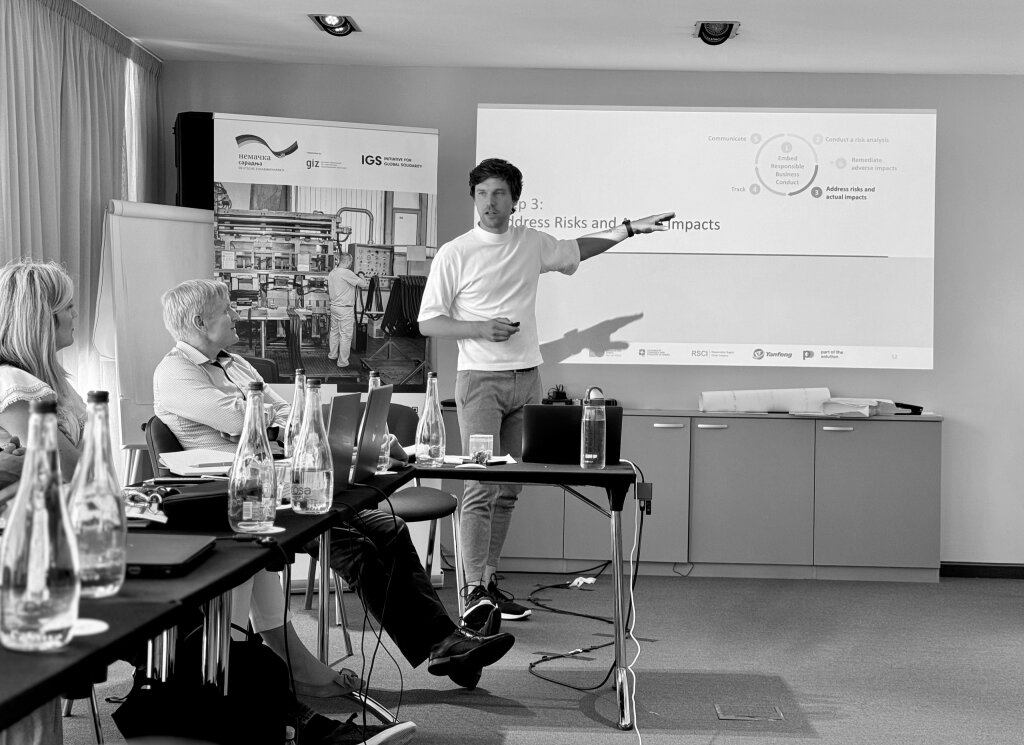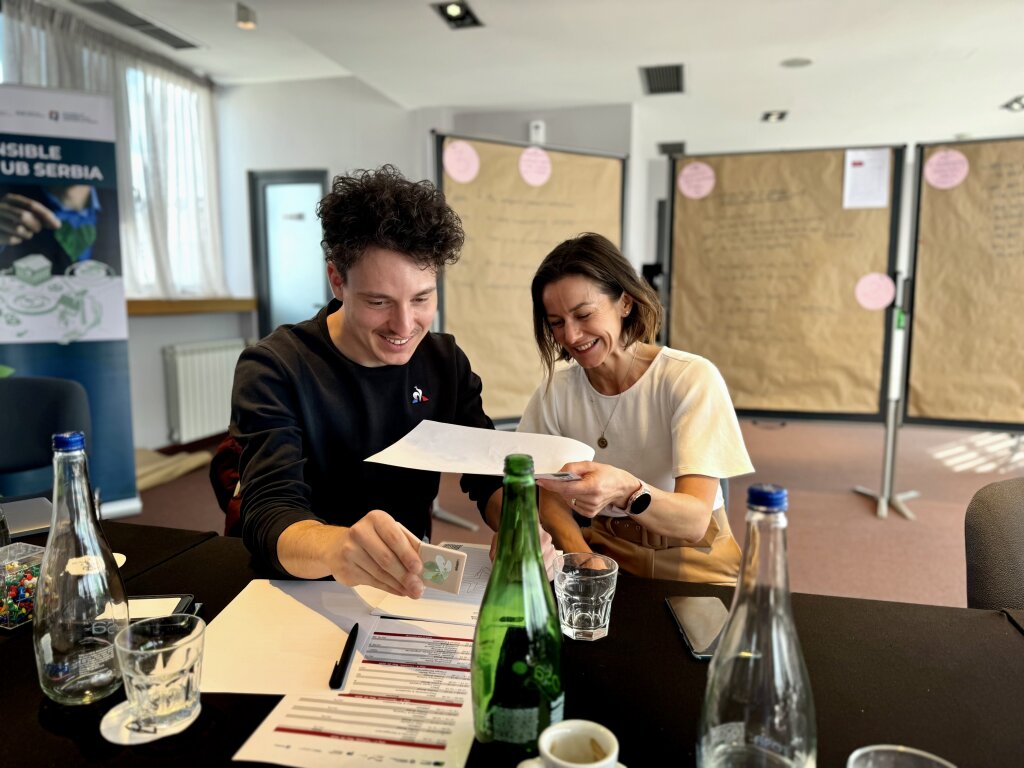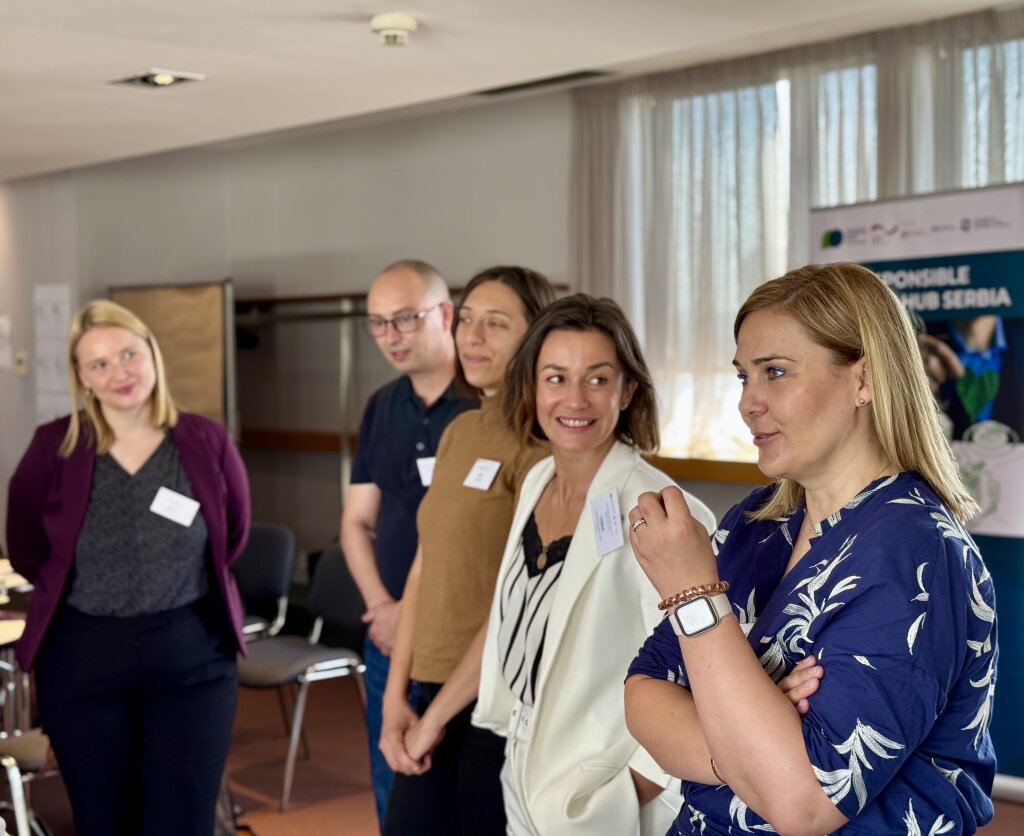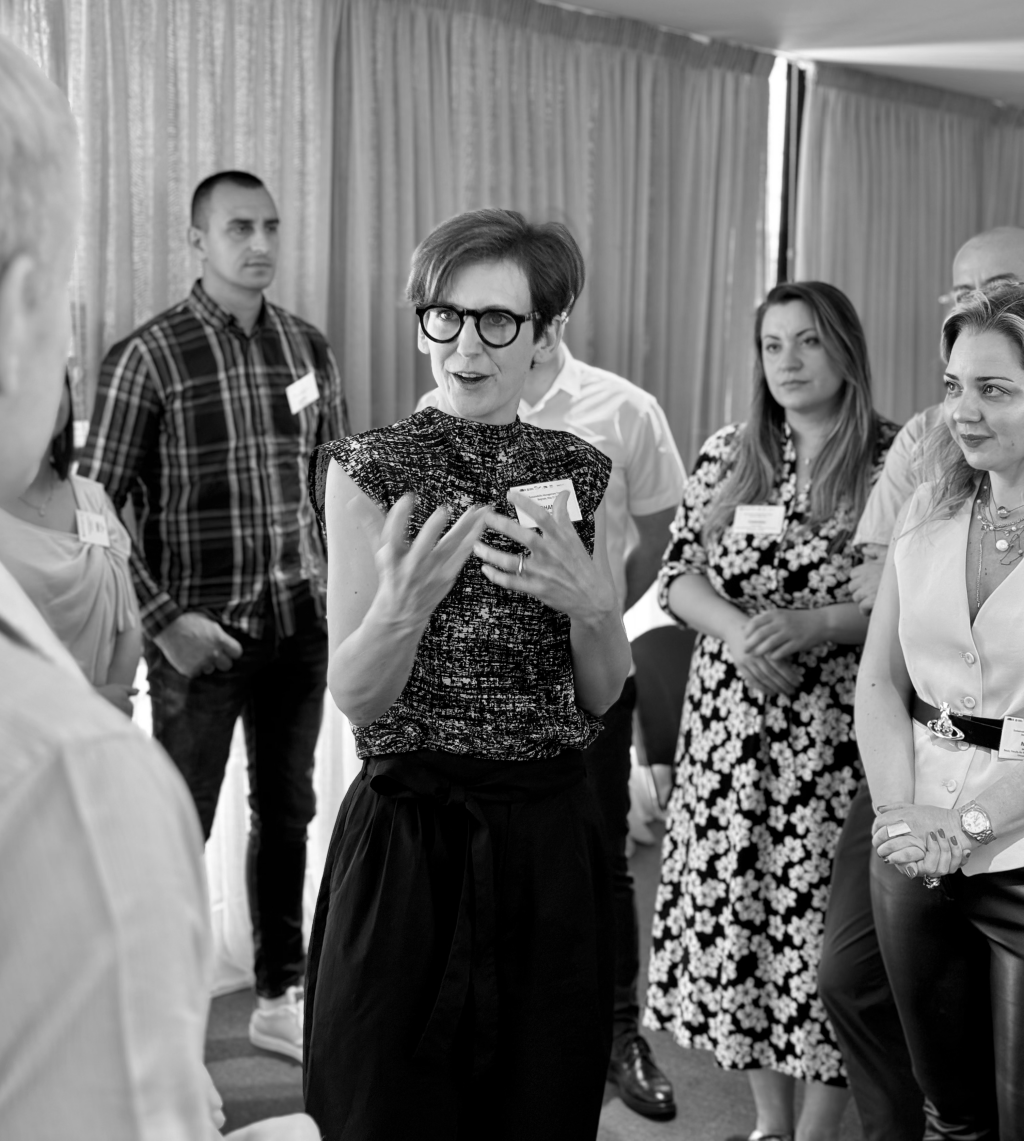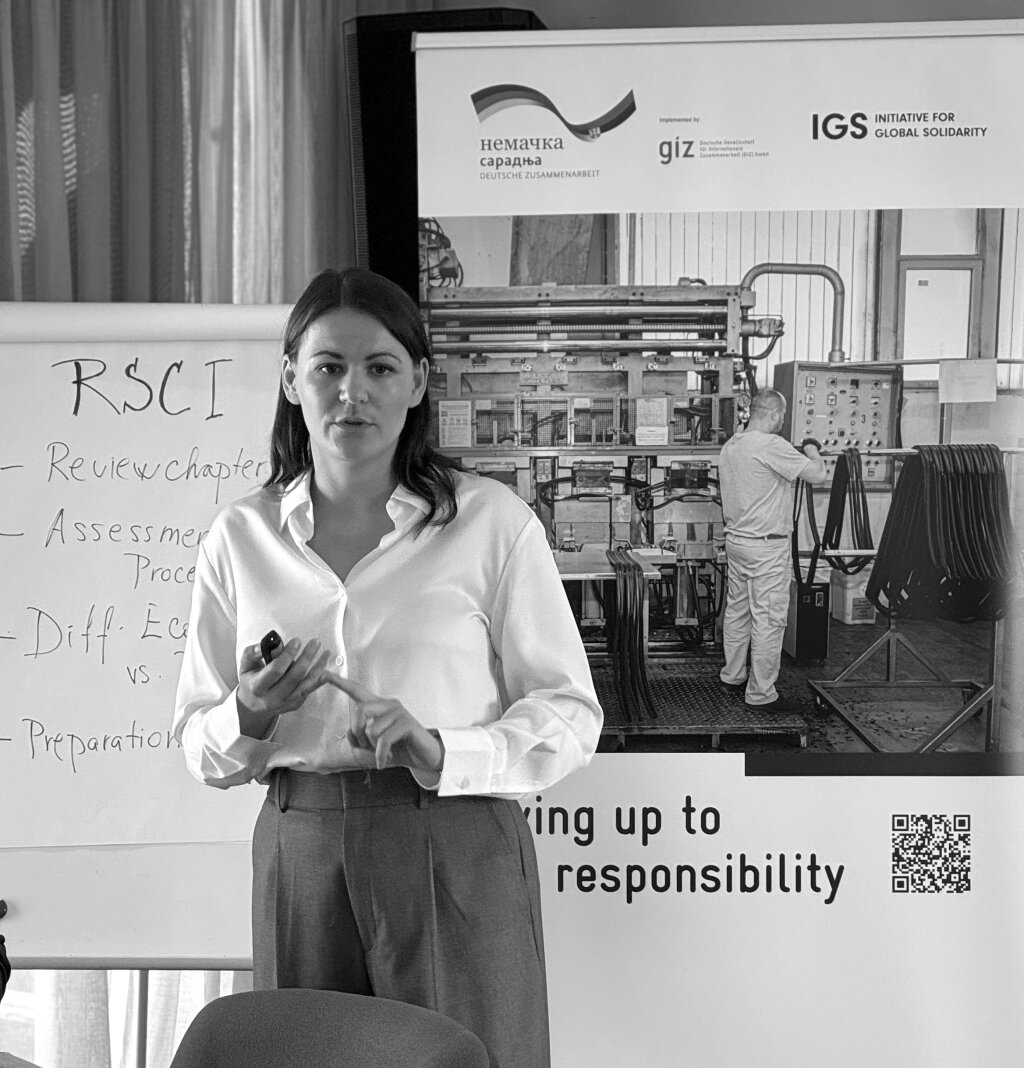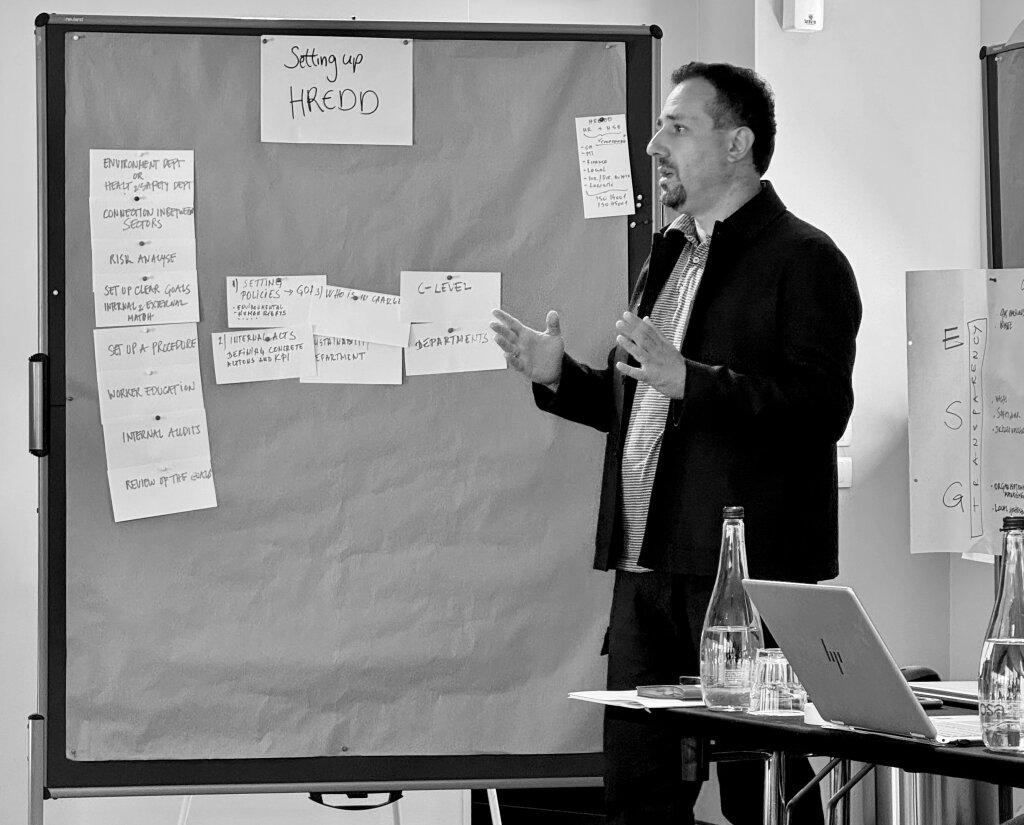Case Study
Strengthening Sustainability Management in Serbia’s Automotive Sector

Focus Area: Supplier Development
Country: Serbia
Industry: Automotive
Summary
In response to ever more stringent EU regulations like the German Supply Chain Act (LkSG) and the EU Corporate Sustainability Due Diligence Directive (CSDDD), POTS led a project with the objective to strengthen the sustainability management of Serbian automotive suppliers. In order to ensure sustainability and scalability of the project, POTS’ approach was to create a market for sustainability consulting services. In doing so, the project specifically addresses the sustainability knowledge gap in Serbia’s automotive industry by training local consultants to support suppliers in meeting new standards.
This initiative, implemented with our partners GIZ, Initiative for Global Solidarity (IGS), the Responsible Business Hub (RBH) in Belgrade, the Responsible Supply Chain Initiative (RSCI), and automotive supplier Yanfeng, focused on three key areas: training consultants, engaging suppliers and EU clients, and enhancing the RBH’s management of its sustainability consultant network. The project has successfully trained 15 consultants, who are now working with Serbian suppliers to comply with sustainability standards, and the RBH is effectively matching local companies with sustainability consultants. This collaborative effort is making significant strides in establishing a sustainable supply chain in Serbia’s automotive industry.
Situation
Driven by the growing momentum in Europe to introduce mandatory human rights and environmental due diligence (HREDD) regulations, such as the German Supply Chain Act (LkSG) and the EU Corporate Sustainability Due Diligence Directive (CSDDD), German and EU companies are increasingly required to analyse, prevent, and remediate negative impacts of their operations on people and the environment. As a consequence, EU companies demand ever higher sustainability standards from their suppliers, including in Serbia.
However, with corporate sustainability still in its infancy, Serbian suppliers lack the necessary expertise and infrastructure to meet these increasingly stringent requirements. This knowledge gap poses a significant problem for both EU buyers and Serbian suppliers: EU buyers need to ensure that they meet their due diligence requirements, whereas Serbian suppliers need to meet unprecedented demands to maintain business relationships with EU partners.
Our client, the "Initiative for Global Solidarity" (IGS), promotes the implementation of due diligence in global supply chains, enabling buying and supplying companies to share responsibility for their business impacts on people and the planet. In Serbia, IGS focuses on, inter alia, the automotive sector. It is implemented by GIZ on behalf of the German Federal Ministry for Economic Cooperation and Development (BMZ).
For us, the challenge was thus to strengthen sustainability management in the long run, in a context where there is limited prior expertise in the field.
Objective
Strengthen sustainability management among Serbian automotive suppliers
Developing the approach:
For designing the project, we set ourselves two two design principles:
Scalability: We wanted to ensure that the project’s results can grow.
Sustainability: Since the sustainability requirements only started to grow, we wanted to create an approach where impacts lasted beyond the project’s duration.
Rather than training a few suppliers ourselves, we therefore decided to qualify sustainability consultants who can grow their businesses as demand rises. Yet, to ensure sustainability, we also needed to make sure that there was sufficient demand for the services.
 Our approach thus focused on three dimensions of a functioning market: Supply, demand and match-making between the two:
Our approach thus focused on three dimensions of a functioning market: Supply, demand and match-making between the two:
Supply: Empower consultants to actively offer sustainability services in the market.
Demand: Engage Serbian suppliers and their EU clients to seek consulting services in order to strengthen sustainability management in manufacturing sites.
Match-making: Strengthen the Serbian Chamber of Commerce’s Responsible Business Hub’s (RBH) management of sustainability consultant network with the aim to match them with Serbian automotive manufacturers.
Process
Our process consisted of three work packages:
Establishing a Model of Shared Responsibility: We created a model of shared responsibility as a framework for both purchasing and supplying companies to take responsibility for enhancing sustainability performance. Under this model purchasing companies represented by the German Association of the Automotive Industry’s Responsible Supply Chain Initiative (RSCI) and leading component manufacturer Yanfeng provide their expertise in the training of consultants and support their suppliers to improve sustainability performance. In turn, Serbian suppliers purchase these consultancy services and enhance their sustainability practices.
Training of local consultants: To ensure consultants were capable of meeting the expectations of their customers, we developed and implemented a comprehensive training programme on corporate sustainability management, human rights and environmental due diligence (HREDD) and consulting skills. This included an on-site workshop in Belgrade, where we collaborated with RSCI to teach participants industry-specific standards and how to implement improvement measures. Following the training, POTS is providing mentoring to consultants in their professional development.
Advising first suppliers: We mentored consultants during their first consulting assignments at supplier factories. During these assignments, consultants help their clients improve their sustainability performance against due diligence requirements and the RSCI standard.
Results
The sustainability management programme in Serbia shows that collaboration between companies but also between buyers and suppliers can help improve sustainability in the supply chain. Designed for scalability, this supplier development programme can be repeated and expanded in the future to achieve long-term, systemic change.
Specific results include:
Facilitated a Model of Shared Responsibility between buying and supplying companies
15 consultants and company representatives trained on sustainability management, human rights and environmental due diligence and consulting skills
Consultants are currently working with Serbian suppliers to comply with sustainability standards
The Responsible Business Hub is matching incoming request from local companies with their pool of sustainability consultants
Learnings
Key learnings from the project include:
Importance of Tailored Training: Customised training programs that address specific industry standards and requirements are crucial for effective sustainability implementation.
Need for Continuous Support: Ongoing mentorship and support are essential to ensure that newly trained consultants can successfully apply their knowledge in real-world scenarios.
Collaboration is Key: Strong partnerships with local and international stakeholders significantly enhance the effectiveness of sustainability initiatives.
The success of this project serves as a model for similar initiatives in other regions, demonstrating that with the right training and support, local suppliers can meet and exceed international sustainability standards.
